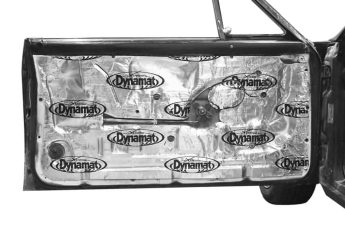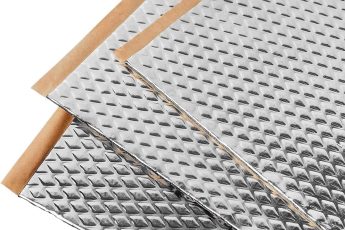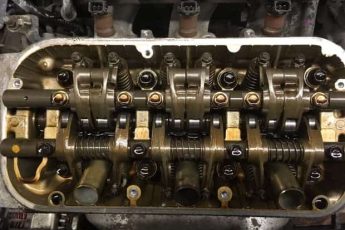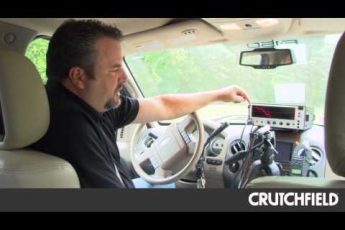If you’re tired of listening to blaring music from your car’s speakers, you can fix the problem easily. You don’t need to be an expert in electrical systems to solve the problem, as you can simply fix a bad connection in the speakers using a $15 multimeter. If you don’t have a multimeter, you can read articles about vehicle electrical systems and learn how to troubleshoot your car’s speakers.
Ground loop
One of the most annoying audio problems that can affect your car stereo is the so-called ground loop. This problem occurs when two audio components are not grounded correctly, causing a loop in their ground potentials. This results in unwanted interference and static. If you suspect that you are experiencing this problem, you can check your audio setup to determine which components are grounded correctly.
The first step to solve the problem is to disconnect the speakers from the amplifiers and batteries. Once you’ve done that, you should try listening to different music tracks to figure out which component is causing the noise. Alternatively, you can try using a noise isolator or car filter to isolate the source of the noise.
Another common cause of ground loop is a faulty amplifier. If this is the case, your speakers could be grounding improperly and making a buzzing sound. If you’re unsure of what’s causing the noise, check your amplifier’s main power cable. If it’s too thin, you’ll need to purchase a thicker cable.
The noise coming from your car speakers can also be due to the ignition system. A poorly grounded ignition system can cause ticking noises in other car components. A good solution to this problem is to properly ground the ignition system. This can be done by using a braided ground strap. Another solution is to install a ground loop isolator in the RCA/audio cable line. There are also noise suppressors that can be used in the 3.5mm stereo cable input. Ground loop isolators are available for many applications, including in cars.
A ground loop occurs when the negative wire is improperly grounded. This results in a popping noise after a period of time. This noise occurs because the electricity moves through the system and grounds out somewhere in the vehicle. The speakers are a common source of this noise. Therefore, you must fix this problem immediately to prevent further damage.
If this noise persists, you should check your audio system for a ground loop. If the car has a speaker grounding problem, the issue will not be solved until you have a ground loop isolator installed. If this does not solve the problem, take your car to an audio repair shop.
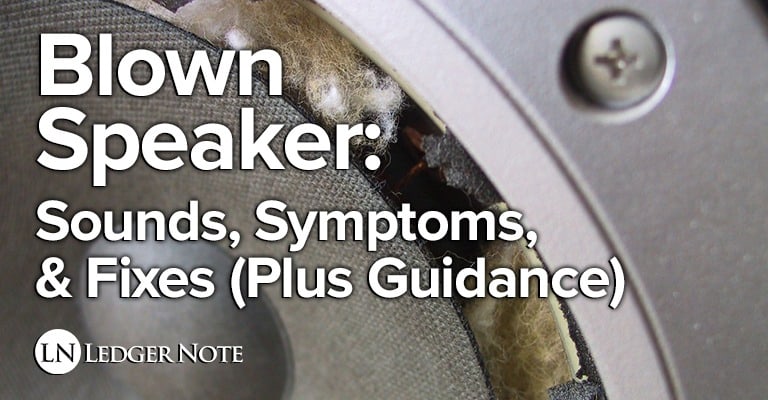
Electrical interference
If you’re experiencing speaker noise even when the car is off, it’s likely that there’s an external source of interference. This could be anything from power lines to devices plugged into your car’s USB port. It can also be caused by a loose connection of wires in the speakers. Fortunately, there are some simple fixes that can solve this problem.
First, check the speakers themselves. If you can, try putting one ear to each one. If there’s a noise coming from one of the speakers, it’s most likely caused by a loose speaker wire or poor quality wiring. Secondly, the speaker itself could be defective.
If you’re experiencing speaker noise while driving, you may have a problem with the amplifier or the electrical system itself. In most cases, the speakers will make noise if there’s electrical interference, but it can also be caused by nearby objects. If this problem persists, you may have to try changing the amplifier or the speakers themselves.
In some cases, the noise is caused by a loose wire or a faulty connection between the car speaker and the amplifier. Identifying the source of the noise can be difficult if you’re not experienced with wiring. Also, some vehicles have speakers designed to have constant power, so they may make noises even when the car is turned off.
The most effective solution to this problem is to have the speakers professionally installed. Getting quality speakers and a proper wiring system will prevent this interference from occurring. It will also save you money in the long run, and silence that annoying vibration that is caused by a vibrating subwoofer.
The first step is to inspect the speaker wiring. It should be secure to prevent any electrical interference. Using a circuit tester will help you determine the cause of the noise. The most common cause is an incorrectly wired radio. If the radio is not receiving power from the ignition wire, a specialist should be able to rewire it properly.
Another solution involves using an LED transformer that has excellent EMI suppression. The cable used should be as short and shielded as possible. If these measures do not resolve the problem, you should add an EMI filter to the LED transformer’s output. Moreover, if the noise continues, you should reposition the speakers. If the problem persists, you may also want to shield your speaker wires by using a Mu-metal foil.
Too much bass
Too much bass in a car can be caused by a variety of factors, from improperly adjusted car stereo equalizers to improperly shaped speakers. The shape of the car itself can also affect the bass, as a horn-shaped car will amplify low-frequency sound waves more effectively. In addition, the size of the speaker cone will affect the bass, as larger cones move more air. The location of the speakers in a car is also important, as speakers in door panels are closer to the ear.

Another cause of excessive bass in a car is faulty wiring. When car stereo systems are not properly wired, they can experience problems, including bass overload and ground looping. Ground looping occurs when different points of the speakers or the amplifier connect to the same ground. This causes unwanted noise, as well as low-frequency hums.
One solution to this problem is to install a second battery, but this isn’t necessary for most car owners. Not only is a second battery an unnecessary expense, it also adds an unnecessary amount of amperage. A cheaper and more convenient alternative is to install power caps, which store electrical charge and release it when extra power is required. Although they may not be as effective as a new alternator, power caps can help reduce the electrical load during the times when bass levels are high.
Another simple solution is to turn down the volume of the audio system. Some audio systems produce seat-rattling bass as a result of distortion, engine noise, and unbalanced equalizers. The resulting sound is unpleasant and is often so loud that the listener will turn the car off or simply turn it down.
If you’re looking for the best solution for your bass, consider adding a subwoofer to your car’s audio system. This will improve the bass sound and lessen the stress on the speaker. Depending on your budget, you can buy a powered subwoofer, which has line-level outputs.
Antennae noise suppressors
Antennae noise suppressors are devices that plug into the antenna ground path, preventing noise from entering the audio system. Whether the noise originates from the antenna or from the radio receiver, these devices can help you get rid of the problem.
The first step in eliminating the noise is to locate the noise source. Locate the antenna’s grounding point, and try to fix it. If you can’t, you may want to move the head unit from the dash cavity. In addition to removing the head unit, you can also shield its power cables from the noise.
Noise suppressors can also be installed in the power line, RCA/audio cable line, or 3.5mm stereo cable input. If you’re having the issue of speakers making noise when car is off, noise suppressors can be the best solution. If these solutions don’t work, you can try installing a ground loop isolator, which is a device that isolates the audio system from the power source.
If the problem still persists, you can also look for the source of the noise. Some of the causes of static noises are the amplifier’s wiring, poor ground, and improper mounting. A good way to isolate the amplifier from the car’s chassis is by using rubber grommets.

Noises may also come from other car components. This may include the radio, GPS, turn signals, cell phones, or air conditioning system. These components can cause distortion of audio systems. When you discover the source of the noise, you can install a noise suppressor or an antenna filter.
Another way to solve the problem is to use an inline noise suppressor. These devices contain a large inductance that connects to the speaker ground and a small capacitor in parallel. These parts are available at car stereo shops. In addition, you can also buy noise-canceling devices and filters for car speakers.
